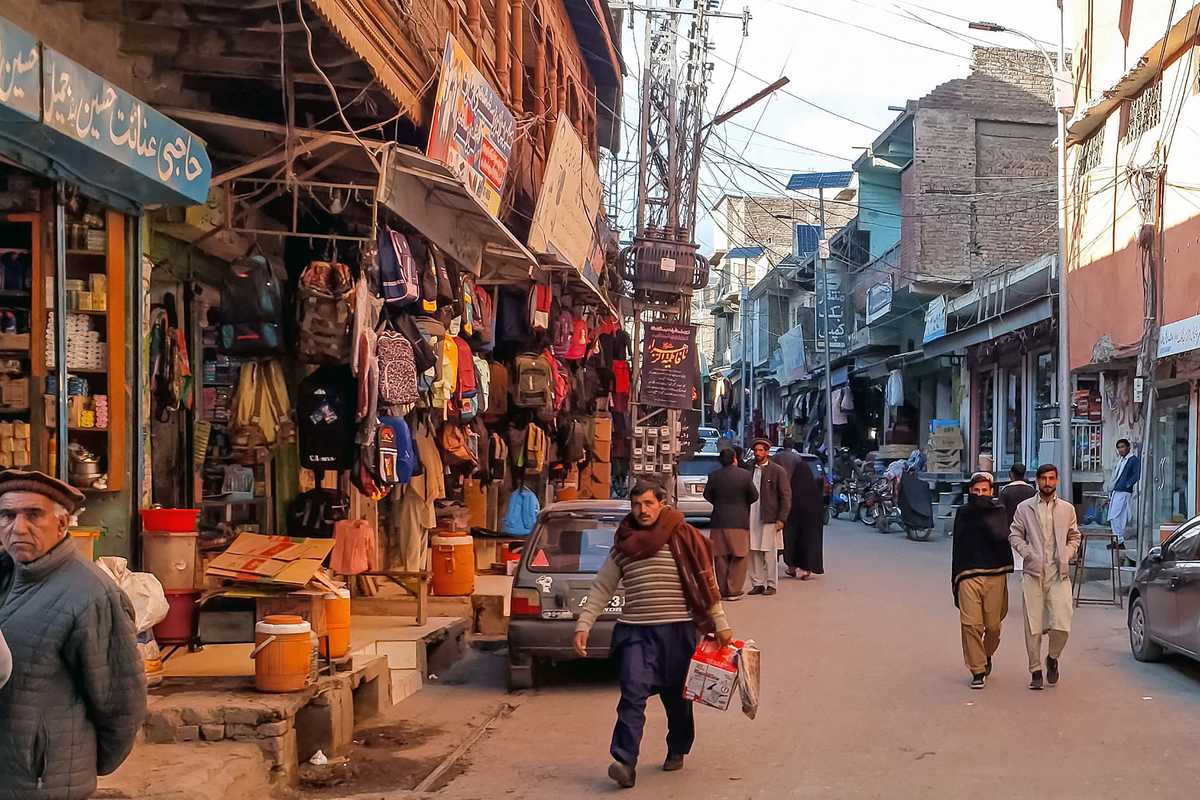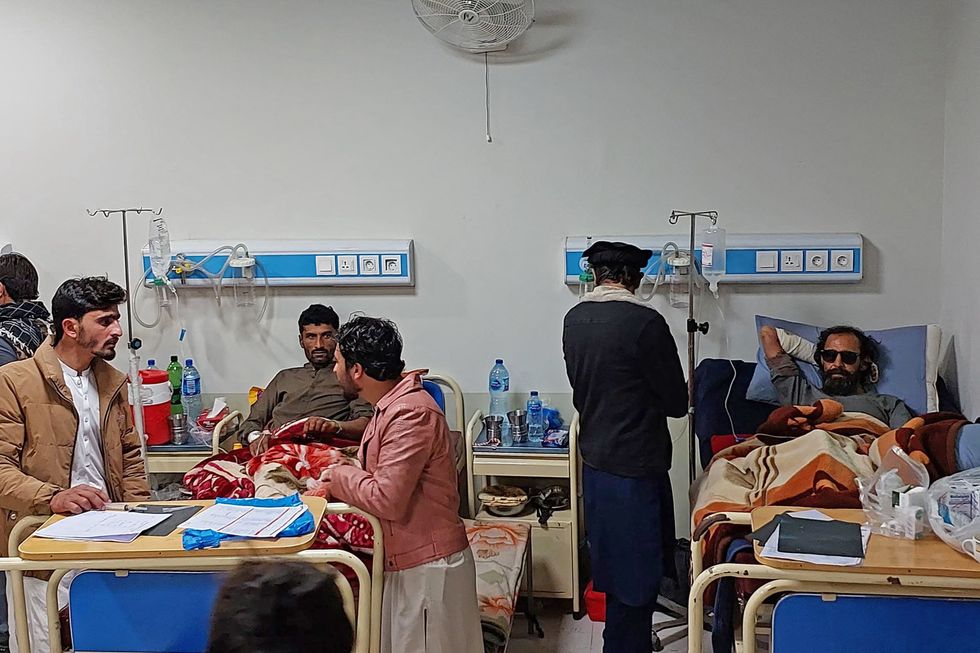1,405 killed in Pakistan’s Kurram over two decades: Interior Ministry
149 people killed in violent clashes between 2018-2025, says Interior Ministry report

Javed Hussain
Correspondent
I have almost 20 years of experience in print, radio, and TV media. I started my career with "Daily Jang" after which I got the opportunity to work in FM 103, Radio Pakistan, News One, Ab Tak News, Dawn News TV, Dunya News, 92 News and regional channels Rohi TV, Apna Channel and Sach TV where I worked and gained experience in different areas of all three mediums. My journey from reporting to news anchor in these organisations was excellent. Now, I am working as a correspondent with Nukta in Islamabad, where I get the opportunity of in-depth journalism and storytelling while I am now covering parliamentary affairs, politics, and technology.

This photograph taken on December 3, 2024, shows local residents walking across a market reopened after sectarian clashes in Parachinar, Khyber Pakhtunkhwa province.
AFP
Main supply road blocked for 100 days, creating humanitarian crisis
14-point peace agreement signed January 1 by Shia and Sunni elders
273 private militant bunkers to be demolished
A report released by Pakistan's Interior Ministry reveals that 1,405 people have been killed in sectarian violence over the past two decades in Parachinar, Kurram district, a northwestern tribal region of Pakistan bordering Afghanistan.
The comprehensive report, obtained by Nukta, details the ongoing sectarian strife between Sunni and Shia communities in this volatile border area, where militant groups have exploited religious tensions amid challenging geographic and security conditions.
Interior Minister Mohsin Naqvi stated that the "volatile security situation in Kurram, exploited by militants and sectarian elements, has led to frequent incidents" of violence. The region has experienced recurrent sectarian clashes and road blockades resulting in severe shortages of fuel, food, and medicine, creating what officials describe as a "humanitarian crisis".

According to the report, 149 people have been killed in violent clashes between 2018 and 2025. It also documents three major attacks on convoys, with the most recent occurring on January 16, 2025, and earlier incidents on November 21, 2024, and June 21, 2004.
In the January 16 incident, militants attacked an aid convoy of 35 vehicles traveling from Thall to Parachinar near Bagan Bazar in Lower Kurram.

Four vehicles were damaged in the assault, which claimed the lives of two security personnel and injured seven others, including three security officers. Security forces reportedly killed six attackers and wounded 10 others in the ensuing firefight.
A critical flashpoint in the ongoing conflict is the blockage of a main road connecting the region to the rest of Pakistan, which has been shut for over 130 days as of January 15. This key supply route has only been intermittently opened to allow for the passage of essential goods.
Earlier, on January 4, Kurram's Deputy Commissioner Javedullah Mehsud and his security team were attacked near Bagan while negotiating with protesters to reopen the Thall-Sadda-Parachinar Highway.

This incident led to the imposition of Section 144, restricting public gatherings, arrests of suspected militants and prompted the Grand Jirga to implement stringent measures to apprehend those responsible.
'Jang-e-maghlooba'
The violence in late 2024 escalated after an attack on a Shia convoy in Ochat, Lower Kurram, which resulted in 42 fatalities and injured 20 people, including a police officer. In retaliation, armed Ahle Tashee groups attacked Bagan Bazar, setting fire to buildings, killing 37, and wounding several others.

The report outlines several peace initiatives, including a 14-point agreement signed on January 1 by Shia and Sunni tribal elders along with government representatives. This accord ended an 86-day blockade and established measures to prevent what locals term "jang-e-maghlooba" — a cycle of revenge attacks.
During a Khyber Pakhtunkhwa Apex Committee meeting on December 20, 2024, the Interior Minister emphasized the need to eliminate militant bunkers and reduce the proliferation of weapons in the area, pledging full cooperation with the provincial government to restore order.

Chief Minister of Khyber Pakhtunkhwa directed the delivery of essential supplies via helicopter to Parachinar during the road blockade to alleviate the humanitarian situation.
To address the security challenges, the federal government plans to establish a Special Protection Force comprising 399 former servicemen. The provincial government of Khyber Pakhtunkhwa intends to construct 48 checkpoints along the Thall-Sadda-Parachinar Road.
Steps towards peace
As part of the peace agreement, approximately 273 private bunkers built by armed groups will be demolished , with eight already removed in the Balishkhel and Khar Kili areas.
A Grand Jirga, a traditional assembly of tribal elders, has mandated strict action against those violating the ceasefire and aiding militants. Both communities have been required to submit plans for an arms ban within two weeks.

The provincial government, tribal elders, and the Jirga are working jointly to resolve land disputes with explicit support from the peace committee, local administration, and law enforcement agencies (LEAs). The agreement stipulates that any hostilities following the demolition of bunkers will be deemed terrorism.
Police and other security forces have launched joint operations in Bagan and Lower Kurram against militants, while ensuring the movement of goods and relief convoys under extensive security cover.

"Elders and leaders of both sects have been engaged for de-escalation of the situation," the report states, adding that "strict action is being taken against the peace spoilers."







Comments
See what people are discussing